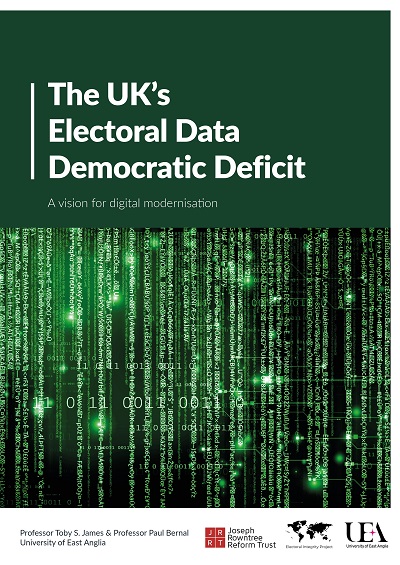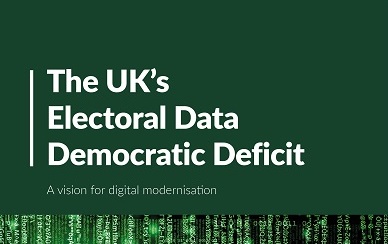Professor Toby S. James & Professor Paul Bernal, January 2023
“the UK’s electoral machinery was established in Victorian times, and large parts of the data architecture in the electoral world remains Victorian.”
 This report outlines the electoral data democratic deficit in the UK and its consequences for democracy, and makes the case for urgently establishing a comprehensive architecture and approach to electoral data to enable a fairer and more inclusive democracy.
This report outlines the electoral data democratic deficit in the UK and its consequences for democracy, and makes the case for urgently establishing a comprehensive architecture and approach to electoral data to enable a fairer and more inclusive democracy.
The report finds considerable problems with the current elections data infrastructure and approach. There are significant data blackholes – electoral data which is unavailable, but which would be in the public interest to have collected and published. Data is often collated in unworkable formats which restricts usability, severely limiting the ability to develop interventions to improve voter registration and turnout. There is considerable inequality in who has access to data, meaning those who are seeking to support greater equality of participation are heavily restricted or burdened in attempting to learn what works. There are also monitoring gaps in how key electoral data is used, including individual level data on whether people have voted at an election and their history of voting at previous elections. This is often being used without citizens’ knowledge of who and for what purpose the data is being accessed. There is also substantial untapped potential where electoral data could be used to support citizens to be better informed, for electoral institutions to be much more transparent, and for a wide range of actors (including regulators, media, and civil society) to leverage data to promote participation in elections.
This report provides a short- and longer-term plan for modernising the electoral data architecture and approach to ensure it is fit for purpose for the 21st century

